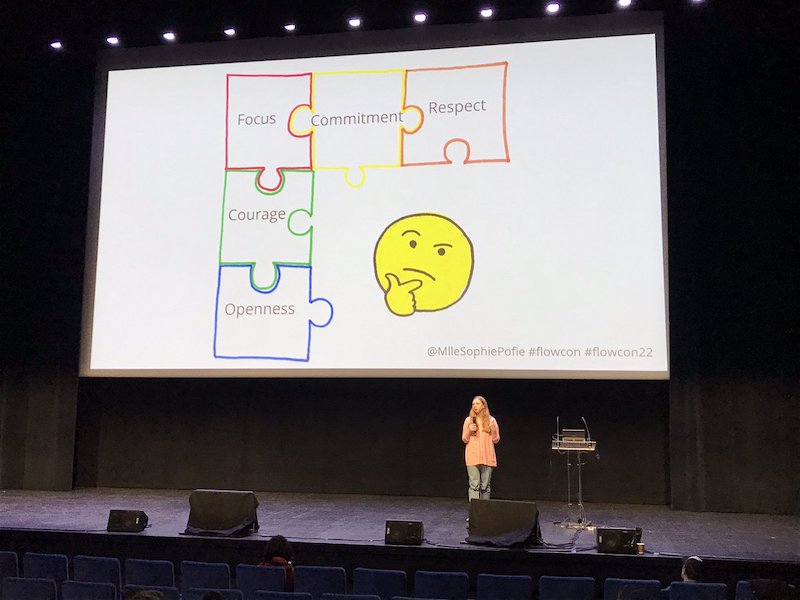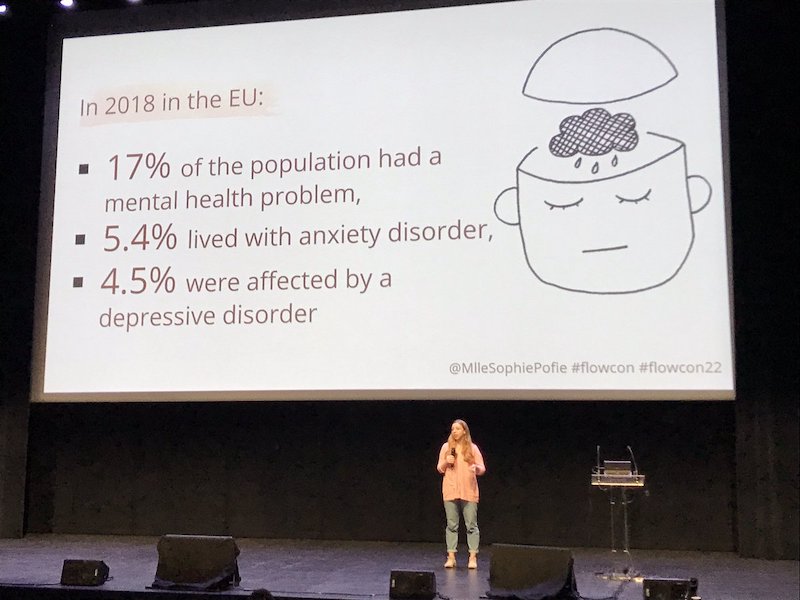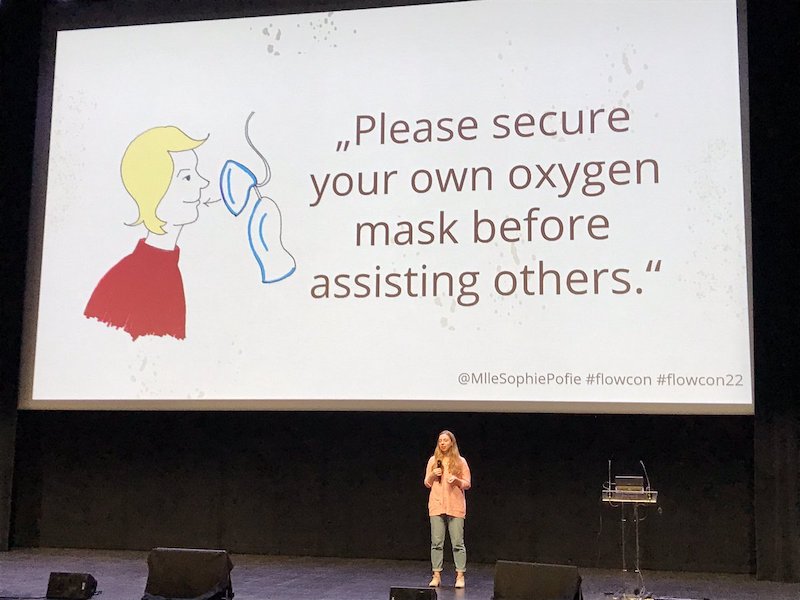There are things you don’t talk about with your colleagues - even less so with your boss. Mental health issues are certainly a big no-no. When I first started working as an agile tester, I kept my history with mental illness secret. As a result, I couldn’t speak openly about topics that are close to my heart: mental health and self-care. In the Agile World however, we value respect, courage, and openness. How do you reconcile this with these taboos?
In this talk, I would like to share what I have learned from breaking taboos. I will discuss how communication improved for me, which obstacles I bumped into, and why I will still not shut up about the things you don’t talk about at work
TLDR Twitter thread by FlowConFR (@FlowConFR)
When I first started working as an agile tester, I kept my history with mental illness secret. As a result, I couldn’t speak openly about topics that are close to my heart: mental health and self-care. I didn’t want to seem weak and vulnerable.

In the Agile World however, we value respect, courage, and openness. How do you reconcile this with these taboos?
Can you really be courageous and open if you deny a part of yourself?

When I attended my first ever testing conference, I saw the openness with which psychological topics were discussed.
Inspired, I came clean to my boss on the very first day upon returning. From then on, I wore my heart on my sleeve.
10 lessons from breaking the taboo
1. you’re never the only one
in 2018 in EU
- 17% of population has mental health issues
- 5,4% lived with anxiety disorder
- 4,5% were affected by a depressive disorder
speaking about it will maybe make somebody else feel less alone => paying it forward is worth it

2. openness inspires openness
before I talked about the bad stuff, I simply didn’t talk all together

I share a piece of myself so you can share a piece of yourself
By sharing your vulnerability you start creating psychological safety for others, and there’s more room for everyone to be themselves.
3. openness is a habit, not a character trait
over time I became more comfortable in being open
openness is much like confidence, you can train it

Once you’ve shared one personal thing, talking about other things becomes less difficult.
over time it gets easier and easier, because you become stronger and stronger
4. showing vulnerability shows strength
why are we often looking at people that struggle as weak
it takes quite a lot of strength to be open
5. some people just don’t get it
When it comes to mental illness, people don’t apply the same logic as they do for other conditions.
with a broken leg: nobody says “have you tried to have your leg unbroken?”
with mental illness: it’s easy to say “it’s all in your head”, why would that even help?
top 3 helpful tips for getting though the dark days (that don’t help at all)
- you just have to stay positive
- it’s all in your head
- but you have nothing to be depressed about
how do you deal with these people?
I have really no idea what to do, except that some people just do not get
that does mean loosing friendship
6. some people get it really badly wrong
I speak very openly about bad thing
-> male attention: you are just disparately asking for attention
No, we’re not asking for attention, and we are definitely not flirting when we are sharing those things.
7. people want to help you. let them
fly fobia, colleague helped
most humans are kind, and they want to help you if you let them
helping people is rewarding, it’s a win-win situation
The Ben Franklin Effect:
He that has once done you a kindness will be more ready to do you another, than he whom you yourself have obliged.
– Franklin, Benjamin, the Autobiography of Benjamin Franklin, page 48
8. there’s strength in numbers
people with distress become masters in coping mechanisms

on some days none of them seem to work
when you are sick and tired of coping
you don’t want to be coping all the time.
once you start speaking, others listen
everybody fights there own battles, create your little group and rely on each other, you can help each other
If someone needs to talk to you about something, ask them “Do you need to vent or a piece of advice?”
9. bluntness uncomplicates things
Just saying things is a relief.
I wrote the first proposal for this talk in early 2020
I was just out of therapy
pandemic, staying at home all the time, not being with friends and family
when things becomes just a bit better: diagnosed breast cancer -> back in therapy
10. everybody should know the oxygen mask rule
most helpful in therapy
maybe stop thinking of making others happy, and start making yourself happy I was literally starving myself, calling myself names
taking care of your own emotional well being is part of your job like brushing your teeths
if you do not take care of yourself, others have to take care of you
it is like on a plane:
“please secure your own oxygen mask before assisting others”

Be Kind!!!
to others
but also to yourself!!
But watch out for:
- feelings of sadness, guilt, hopelessness, anger, irritability; numbness
- social withdrawal
- loss of energy, focus, interest
- changes in appetite, weight, sleep
- self-loathing, recklessness
- unexplained pains, aches, rashes
Why I am telling you all this?
it is about time we get used to talk about mental health
these are horrible stressful times we are living in (Ukrainian war, Pandemic, energy crisis, cost of living going through the roof)
even before the cost of living crisis, the Ukraine war, Covid… lots of people where/are suffering from mental illness. Odds are you already know someone who suffers from depression.
We need to fight the stigma. Let’s normalize talking abt that.
Talking about mental health is more important than ever.
we talk more about it today than let’s say 40 years ago
but … the way we talk about it is influenced by taboo and stigma
people with mental health issues are normal people!
it is on us to make something of psychological safety
=> having an open, unprejudiced conversation about this
Last tip:
to foster sharing and trust: Start by signaling you are ready to listen. Talk about feelings and emotions frequently. Talk openly about your stuff, it will help people reciprocate.